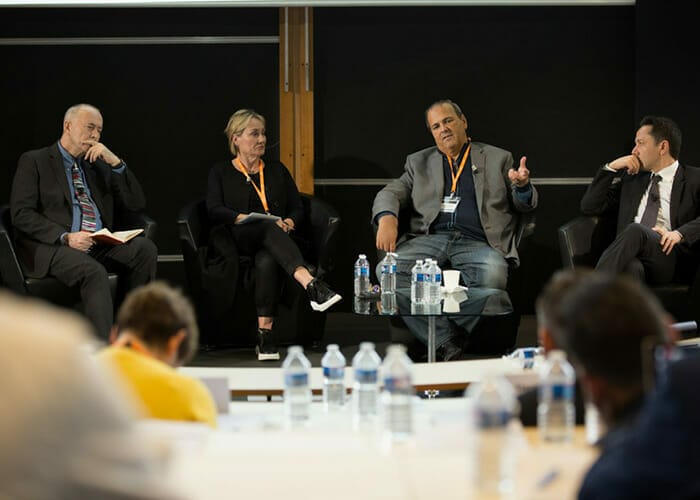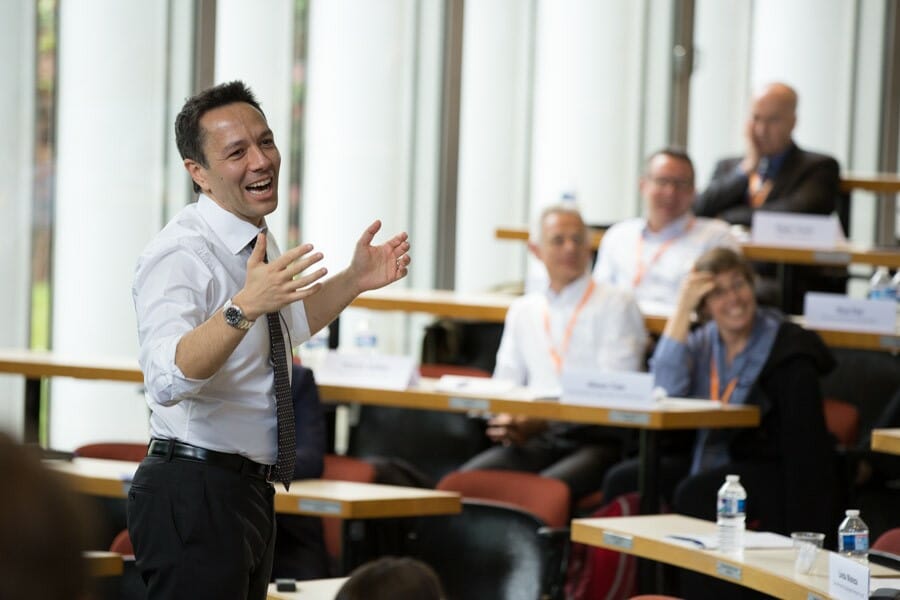Transformational change among asset owners is a rare beast, said Roger Urwin, head of investment content at Willis Towers Watson, because funds prefer incremental change.
Speaking on a panel at the Fiduciary Investors Symposium at INSEAD, Urwin said investors needed to differentiate between the operating model – which involves culture, leadership, talent, reward and technology – and the investment model, which is how and where assets are allocated.
He identified five funds worldwide as exemplars of transformational change – the Future Fund, RPMI Railpen, PSP Investments, the Canada Pension Plan Investment Board and the California Public Employees’ Retirement System.
Panellist Daniel Garant, chief investment officer of PSP Investments, said the fund made changes after looking at allocation in the context of the total portfolio.
“We realised the silos you end up with are a collection of different assets that aren’t optimised at the total portfolio [level], so we changed that a couple of years ago. We were faced with great investment opportunities but they didn’t fit anywhere. The principal I came up with is if it’s good for the fund then we’ll find a way to make it fit. We still do strategic asset allocation and asset liability modelling but if we come across a strategy that is good, we make it fit,” he said.
One example of that is a private debt investment to which the fund allocated $1 billion.
“For the private debt asset class, it didn’t make sense,” Garant explained. “It was too big for one deal. But we decided to do it because on a total fund basis it made sense. You need to look at what moves the dial for the total fund.”
He said the investment teams see the good transactions in their asset class, but they need to keep the total fund in mind.
Urwin said he thinks there is a sweet spot of between 50 and 70 professionals in an investment team where they are able to practise the one portfolio approach.
Also speaking on the panel was Gianpiero Petriglieri, associate professor of organisational behaviour at INSEAD, who discussed the concept of leadership in transformational change. He said true leadership transcends the difference between personal and organisational change.
“Leadership erases that distinction,” he argued. “Personal change for leaders will result in the organisation adjusting, and vice versa. The most significant quality the leader can have is to deal with ambivalence. Most of us like the idea of change but not the practice of change.”
Garant said a change in leadership a few years ago at the chief executive level was an impetus for transformation at PSP.
“We felt that, compared with our peers who were trading in private equity, we didn’t have a global presence or portfolio, and we didn’t have private debt. A few months after the new chief executive joined, we opened a New York office dedicated to private debt. This was a big plus, as you hire experts who have been doing it for decades. But you also have the complexity of adding people who have never worked at PSP before; that’s much tougher than people believe to bring together. We also opened a London office focused on private equity and it was all done within a year, because people wanted results quickly and wanted change to be permanent and dramatic.”
Susan Doyle who is chair of the investment committee at the New South Wales Treasury Corporation and was one of the founding board members of the Future Fund, said culture and the organisation have to be in sync.
“The strategic side of investments was straightforward,” Doyle said. “But the culture side of it was not as straightforward. How you assess and seek [good culture] is not straightforward and is a challenge for our industry. Very costly for organisations to figure out culture.”
But Petriglieri said culture doesn’t exist.
“Look at the people – they are the culture. Look at how you allocate resources and what you reward positively and negatively. If you change those things, then you are changing the culture. Everything else is rhetoric,” he argued.
Urwin pointed out that asset owners have the distinction of having a strong purpose, but that it is a motivation that probably hasn’t been marshalled enough in organisations.
Garant said PSP is using that sense of purpose as a tool to distinguish the fund from different actors in the financial markets.
“Adding a local presence in London has increased our access and talent pool,” he said. “But…it’s expensive, and you get a sub-culture. So you need a mix of local talent and people from head office, so you have one culture, not many cultures.”




